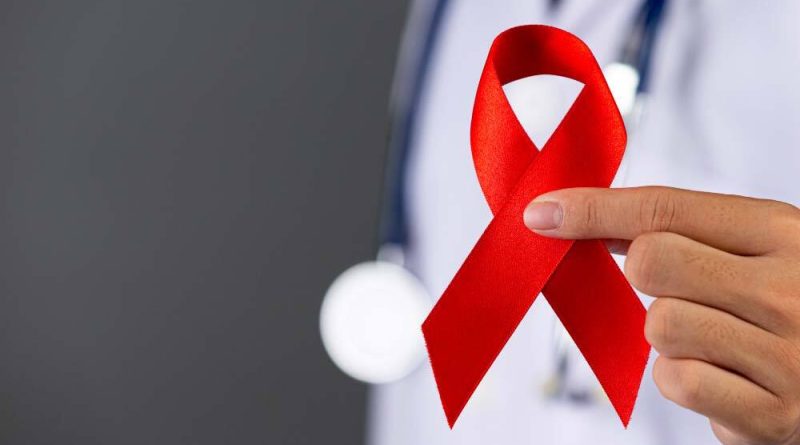Major Health Stories Across Nigeria (January 2025 Edition)
The first month of 2025 witnessed significant events in Nigeria’s health sector. From the United States’ suspension of vital funding for HIV/AIDS programmes in developing countries, including Nigeria, to ongoing battles with Lassa Fever, it’s been a month of crucial conversations. Here’s a look at some of the most important health stories in January.
Trump halts HIV funding for developing countries, but new waiver offers hope
This report sparked significant reactions from global health experts. Based on orders signed by President Donald Trump, the US State Department stopped the disbursement of funds from the President’s Emergency Plan for AIDS Relief (PEPFAR), a programme for HIV treatment in Nigeria and other developing countries, for at least 90 days.
With an annual budget of $6.5 billion, PEPFAR delivers HIV/AIDS treatment to more than 20.6 million people, including about two million in Nigeria. The support has helped save lives and curb the spread of the virus.
The suspension threatened to derail progress in Nigeria’s fight against HIV/AIDS. However, hope emerged when US Secretary of State Marco Rubio granted a waiver, allowing PEPFAR to continue providing life-saving HIV medications to low-income countries.
While this is a temporary relief, the situation presents an urgent need for Nigeria to strengthen its local health systems and funding mechanisms.
Fight against Mpox continues
The Africa Centres for Disease Control and Prevention (Africa CDC) called for enhanced global collaboration to combat the spread of Mpox, which was earlier declared a continental and global health emergency, respectively.
With new cases being reported in several African countries, Africa CDC is scaling up response to Mpox by expanding laboratory capacity, deploying rapid-response teams, and intensifying vaccination campaigns in hotspots.
The Nigerian government had in 2024 announced the reintroduction of health declaration forms for travellers arriving in the country.
According to the Ministry of Health and Social Welfare “the form is an instituted measure to prevent the spread, monitor the possible importation of infectious diseases and aid the control of disease outbreaks, thereby protecting the health of all Nigerians.”
Nigeria also launched its Mpox vaccination campaign in 2024, targeting healthcare workers and individuals with weakened immune systems.
Lassa Fever
With 214 confirmed cases and 39 deaths reported between 30 December and 19 January, Lassa fever remains one of Nigeria’s most persistent viral diseases.
Lassa fever is transmitted to humans through contact with contaminated food or household items that are infected or even direct contact with its patient.
Its symptoms include fever, headache, sore throat, general body weakness, cough, nausea, vomiting, diarrhoea, muscle pains, chest pain, and, in severe cases, unexplainable bleeding from ears, eyes, nose, mouth, and other body openings.
The NCDC noted that the National Lassa fever multi-partner, multi-sectoral incident Management System has been activated to coordinate response at all levels at the Emergency Operation Centre (EOC).
It highlighted some of its challenges in the fight against Lassa fever, which include late presentation of cases leading to increased CFR and poor health-seeking behaviour.
Others are poor environmental sanitation conditions and poor awareness observed in high-burden communities.
Neglected Tropical Diseases
Shocking statistics emerged as Nigeria joined the rest of the world to commemorate the 2025 World Neglected Tropical Diseases (NTDs) on 30 January. Over 200 million Nigerians are said to be at risk of contracting at least one NTD, with 165 million in need of preventive chemotherapy.
In response, the Nigerian government said it is focusing on large-scale treatments, but concerns about sustainability and effectiveness remain.
The government had in November said approximately $19 million is required to effectively combat NTDs in the country.
Nigeria set to strengthen domestic HIV response
In light of President Donald Trump’s decision to halt overseas assistance programmes, the National Agency for the Control of AIDS (NACA) has pledged to ramp up domestic resource mobilisation efforts to ensure the sustainability and ownership of Nigeria’s HIV/AIDS response.
In Nigeria, the US President’s Emergency Plan for AIDS Relief (PEPFAR) remains a major contributor to the treatment of People Living with HIV (PLHIV), covering approximately 90 per cent of the country’s treatment needs.
Over the years, PEPFAR is said to have contributed over $6 billion to support Nigeria’s national HIV/AIDS response.
However, with growing uncertainty about the future of HIV funding, the Nigerian government is determined to enhance its domestic HIV response to safeguard progress in combating the epidemic.
READ ALSO: World Cancer Day: Experts call for increased funding to combat disease
US withdrawal from WHO
One of the executive orders signed by President Trump is the US withdrawal from the World Health Organisation (WHO), a move that experts predict could significantly impact the agency’s operations.
The president said the withdrawal was due to the inappropriate political influence of member states on the global health body.
In response, the WHO called for a constructive dialogue with the US, emphasising the need to preserve their decades-long partnership.
The organisation said its relationship with the US is pivotal to protecting global health and security, noting that the country played a significant role in its efforts to tackle disease outbreaks, strengthen health systems, and respond to emergencies in challenging environments.
In the interim, the global health body said it will review some of its programmes, reduce travel expenses and freeze recruitment, except in critical areas.
Support PREMIUM TIMES’ journalism of integrity and credibility
At Premium Times, we firmly believe in the importance of high-quality journalism. Recognizing that not everyone can afford costly news subscriptions, we are dedicated to delivering meticulously researched, fact-checked news that remains freely accessible to all.
Whether you turn to Premium Times for daily updates, in-depth investigations into pressing national issues, or entertaining trending stories, we value your readership.
It’s essential to acknowledge that news production incurs expenses, and we take pride in never placing our stories behind a prohibitive paywall.
Would you consider supporting us with a modest contribution on a monthly basis to help maintain our commitment to free, accessible news?
Make Contribution
TEXT AD: Call Willie – +2348098788999





